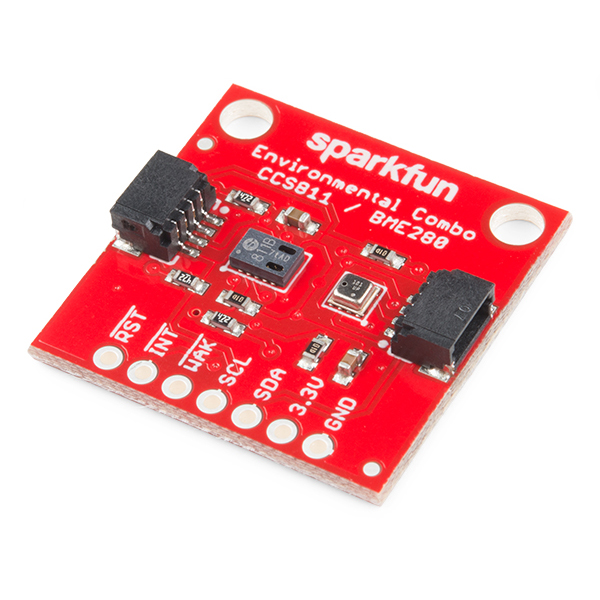SparkFun CCS811/BME280 Combo (SEN-14348)
This library allows the user to:
- Read pressure in Pa
- Read temperature in C
- Read humidity in %RH
It also provides the following mathematical functions based from the above.
- Read temperature in F
- Read altitude in meters
- Read altitude in feet
Some examples include a circular buffer class for averaging.
Thanks to:
- calvin1564 for fixing a name collision
- LukaHitH for adding BMP280 support
- cdonate for adding burst read
- jdavid for integrating math.h
- /examples - Example sketches for the library (.ino). Run these from the Arduino IDE.
- /extras - Additional documentation for the user. These files are ignored by the IDE.
- /src - Source files for the library (.cpp, .h).
- keywords.txt - Keywords from this library that will be highlighted in the Arduino IDE.
- library.properties - General library properties for the Arduino package manager.
- Installing an Arduino Library Guide - Basic information on how to install an Arduino library.
- Product Repositories: (including hardware files)
- Hookup Guide - Basic hookup guide for the SparkFun BME280 Breakout.
- V_1.0.0 - Public release.
- V_1.1.0 - Pulled request to add decimal precision to readFloatPressure() and readFloatHumidity().
- V_1.2.0 - Added ESP32 architecture directives to modify begin operation.
- V_2.0.0 - Major update. Generalized wire port. Functionalized oversampling, standby time, etc. Added setMode.
This product is open source!
Please review the LICENSE.md file for license information.
If you have any questions or concerns on licensing, please contact [email protected].
Distributed as-is; no warranty is given.
- Your friends at SparkFun.

